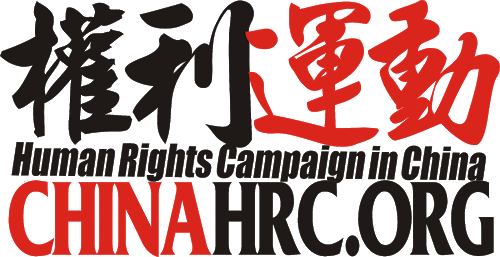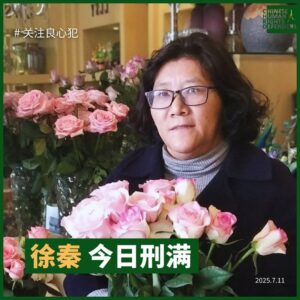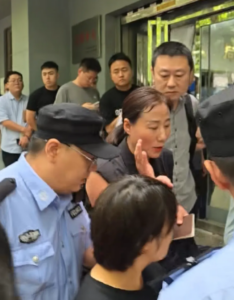Working Group on the Universal Periodic Review
Country: The People’s Republic of China
Submitter: Rights Campaign, a non-governmental organization in China
Date of Submission: March 1, 2013
Contact address: Apt. 101, Unit B, Building 6, Hangyun Jiayuan,
Qishuyan District, Changzhou City, Jiangsu Province
Contact person: Cao Shunli, email address: [email protected]
track websites every day to gather and record the petitioning and rights
defense activities of petitioners and rights defenders in China, as
well as the abuse and suppression that they suffer in the course of
those activities, and to provide legal and other assistance to the
victims. This report primarily recounts the basis for petitioners and
rights defenders to participate in the National Human Rights Action Plan
and the National Human Rights Report, their experience, and the
suppression they suffered.
1. There are no Letters and Visits [petitioning] mechanisms within
Chinese government departments, courts, or the procuratorate, at any
levels to receive complaints by petitioners and rights defenders against
these departments and their subordinate departments. In their actual
work, Letters and Visits departments lack the authority and funds to
resolve the issues in these petitions, and they can only transfer the
problems in these petitions to other departments. Some petitioners and
rights defenders are not satisfied with the results of the Letters and
Visits departments’ handling of problems and the methods they use in
handling these problems, and so they continue to approach departments at
higher levels of government or the central government to report their
problems, demanding that the government directly intervene to solve
them. In recent years, many people engaging in petitioning and rights
defense have been severely punished by some government departments. Some
have been sentenced to Reeducation-Through-Labor (RTL) and prison.
These groups are the main victims of the current corruption in the
Chinese government and judicial injustice, and they are also the main
objects of torture and arbitrary detention.
2. In November 2008, the Chinese government decided to formulate a
National Human Rights Action Plan, and petitioners and rights defenders
once hoped to use participation in this plan to make their human rights
situation known, and to resolve their appeals for human rights. However,
they were suppressed by the government.
I. The experience of petitioners and rights defenders in
participating in the National Human Rights Action Plan and the National
Human Rights Report and the suppression they suffered:
3. On December 10, 2008, International Human Rights Day, several
petitioners and rights defenders went to the Ministry of Foreign Affairs
to submit an application (see Appendix 1) to request that the
government follow the standards established in the Handbook on National
Human Rights Plans of Action, abide by the UN Human Rights Council’s
Document A/HRC/6/L.24, and include the participation of petitioners,
rights defenders, and non-governmental civil society organizations in
the process of the drafting, compilation, and implementation of the
National Human Rights Action Plan and the National Human Rights Report.
The Ministry of Foreign Affairs accepted the application, but at the
same time, the police took into custody around 50 people at the front
gate of the Ministry, and Chen Jianfang and 28 others were put under
administrative detention.[1]
4. On December 18, 2008, the Ministry of Foreign Affairs issued a
response to the petitioners and rights defenders who had submitted the
application (see Appendix 2). Based on the response by the Ministry of
Foreign Affairs, the petitioners and rights defenders proceeded to
submit the application to the Information Office of the State Council.
The Information Office did not accept the application, remained silent,
and did nothing when great numbers of policemen and police vehicles
blocked the advance of the individuals who tried to submit the
application, and detained them. At that time, Yang Guiying and four
others were punished with administrative detention, Cao Shunli and
others were taken into custody and detained in a police station, and
some were detained at the Ministry of Civil Affair’s Jiujing Zhuang
Relief and Assistance Center in the Fengtai District of Beijing.[2]
5. On March 27, 2009, China Newsweek, a media organization under the
jurisdiction of the Information Office of the State Council, published
an interview with a professor from the law department of Peking
University. This professor said: Ninety-nine percent of the long-term
petitioners have mental disorders, and committing them to psychiatric
institutions is the best way of protecting their human rights. A number
of petitioners and rights defenders went to seek an explanation and
protest these comments. On April 12, public security officers detained
Cao Shunli and ten others at the entrance to Peking University.
Afterwards, Cao Shunli was sentenced to serve one year of RTL.[3]
6. On April 13, the Information Office of the State Council issued
the government’s first National Human Rights Action Plan. In April, two
other people, Chen Jianfang and Li Xuehui, who had requested to
participate in the drafting of the plan, were also criminally detained
for going to Peking University to ask for an explanation. After the
National Human Rights Action Plan was issued, some 30 people were taken
into custody on May 27 in front of the Information Office of the State
Council. Among them, five individuals, including Zhu Guiqin, Li Li, Wu
Xiuwen, and Chen Shuxia, were sentenced to serve one year of RTL. Chen
Fengqiang, Zhou Guangfu, and Sun Lijing were sentenced to one year to
three years in prison for gathering people to go to the Information
Office of the State Council, and for welcoming the Speaker of the U.S.
House of Representatives to China, in the hope that she would pay close
attention to the human rights situation in China.[4]
At this point, those petitioners and rights defenders who took part in
the activities related to the application to participate in the drafting
of the National Human Rights Action Plan have been prevented from
continuing their effort as a result of government suppression.
7. According to statistics, during the two years of implementation of
the National Human Rights Action Plan 2009-2010, Beijing sentenced no
fewer than 15 petitioners and rights defenders to RTL and prison terms,
the highest number of petitioners and rights defenders being sentenced
in a two-year period since 2000. Among them, four individuals were
tortured and abused during their incarceration because they refused to
admit guilt, and had protested against the inhuman management system of
the facilities where they were being held. During these two years, four
people were sentenced to prison twice. In the approximately one year
before and after the Shanghai World Expo in May 2010, Beijing and
Shanghai sentenced 11 people to RTL.
8. In a situation where the cases of many petitioners and rights
defenders dragged on unresolved, with many individuals arbitrarily
detained and arrested and suffering torture, the government, on July 14,
2010, issued an assessment of the National Human Rights Action Plan
2009-2010, stating that the goals set by the National Human Rights
Action Plan had been met as scheduled.
9. In September 2011, the media reported that the Chinese government
was about to formulate its second Human Rights Action Plan. On December
9, 2011, some petitioners and rights defenders proceeded to submit an
application to the Information Office of the State Council requesting
participation in the second Human Rights Action Plan (see Appendix 3).
Cao Shunli, who had gone there to submit the application, was detained
by police who were waiting at the entrance to the Information Office and
was taken to a police station,[5]
and 11 petitioners and rights defenders in Beijing were put under house
arrest in their homes. On December 12, the Information Office of the
State Council accepted the application, but it has refused to give a
response.
10. On June 11, 2012, the government issued its second Human Rights
Action Plan. On June 25, Cao Shunli, Chen Fengqiang, and some 100 other
people went to the Beijing Municipal Public Security Bureau to apply for
permission to hold demonstrations[6]
on July 1 and July 2 in the vicinity of the Information Office of the
State Council and the Ministry of Public Security. Furthermore, they
submitted an Open Government Information application (see Appendix 4)
and an open letter to the Ministry of Public Security (see Appendix 5).
On June 30, Chen Fengqiang, who was one of those who applied for
permission to hold demonstrations, was taken into custody, and soon
after was formally criminally detained.[7]
In the night of June 30, those individuals residing in Lü Village in
the Fengtai District, who had applied for permission to demonstrate, and
other petitioners and rights defenders, were taken into custody and
sent back to their original hometowns.[8]
On July 1, Cao Shunli, Chen Jianfang, and others went to the
Information Office of the State Council to submit their Open Government
Information application, and the police who were stationed at the
Information Office once again took Cao Shunli to a police station, where
she was held for 24 hours. Soon after, she was sent back to her
residence, where she was put under house arrest for one day.[9]
Beginning on July 23, Cao Shunli, Liu Xiaofang, and other petitioners
and rights defenders persisted in going to the entrance of the
Information Office of the State Council every Monday afternoon from 2
p.m. to 5 p.m. to request that the Information Office abide by the State
Council’s Regulations on Open Government Information, make public to
petitioners and rights defenders information related to the National
Human Rights Action Plan, and include the participation of petitioners
and rights defenders in the second National Human Rights Action Plan. On
the afternoon of August 13, Peng Lanlan and four others went to the
Information Office of the State Council to deliver an Open Government
Information application signed by 200 people from different parts of
China and 270 copies of a “Survey on the human rights conditions of
petitioners and rights defenders.” Police in the vicinity of the
Information Office took Peng into custody and criminally detained her.[10] To date, she is still being kept in a detention center awaiting trial.
11. Between December 2008 and August 2012, of those who applied to
participate in the drafting and compilation of the National Human Rights
Action Plan and the National Human Rights Report, at least 70 people
were punished by the government. Of these, eight were sentenced to RTL,
while four were criminally convicted and sentenced. Cao Shunli, Chen
Jianfang, and Chen Fengqiang were imprisoned twice.
12. On December 10, 2012, a number of petitioners and rights
defenders, in accordance with the State Council’s Regulations on Open
Government Information, reported to the General Office of the State
Council that the Information Office was derelict in its duties, guilty
of malfeasance, and unlawfully ignored Open Government Information
applications (see Appendix 6). Police detained Cao Shunli, Liu Xiaofang,
and 14 others in front of the State Council’s General Office at
Zhongnanhai and took them to four police stations in the vicinity of
Zhongnanhai, where they were questioned and detained for about ten hours
before being released.
13. On October 18, 2012, some 100 people again went to the Ministry
of Foreign Affairs to deliver an application (see Appendix 7) and
request that the Ministry of Foreign Affairs make public information
related to the National Human Rights Report (see Appendix 8).[11]
On November 15, the Ministry of Foreign Affairs responded to the Open
Government Information application (see Appendix 9), defining
information related to the National Human Rights Report as state
secrets, and thus something that cannot be made public. On January 15,
2013, 64 people again put forward a proposal for administrative
reconsideration (see Appendix 10), requesting that the Ministry, in
accordance with the norms and international practices establishing the
Universal Periodic Review that are set forth in the UN Human Rights
Council Document A/HRC/6/L.24, treat petitioners and rights defenders as
important stakeholders of the National Human Rights Report, and make
public to them related information. To date, the Ministry of Foreign
Affairs has not responded to the request by petitioners and rights
defenders to participate in the process of drafting and compilation of
the National Human Rights Report or the reconsideration of the Open
Government Information application.
II. Our suggestions and recommendations:
14. We recommend that the Information Office of the State Council
consult the UN Handbook on National Human Rights Plans of Action and
international practices, and include representatives of petitioners and
rights defenders and of other vulnerable groups and civil society NGOs
in the participation of the joint conference of the National Human
Rights Action Plan.
15. We recommend that the joint conference and evaluation conference
of the National Human Rights Action Plan be publicly announced one week
in advance, and that representatives of petitioners and rights defenders
be allowed to attend the meetings as observers.
16. We recommend that, in the process of drafting and formulating the
National Human Rights Report, the Ministry of Foreign Affairs make the
petitioners and rights defenders who have had their human rights
seriously violated the main stakeholders of the report, and that it
engage in consultation and communication with these petitioners and
rights defenders.
Appendices:
1. December 10, 2008, application submitted to the Ministry of Foreign Affairs;
2. December 18, 2008, response from the Ministry of Foreign Affairs;
3. December 9, 2011, application submitted to the State Council Information Office;
4. July 1, 2012, application submitted to the State Council Information Office requesting the disclosure of information;
5. July 2, 2012, open letter to the Ministry of Public Security;
6. December 10, 2012, report submitted to the General Office of the State Council;
7. October 18, 2012, application submitted to the Ministry of Foreign Affairs;
8. October 18, 2012, application submitted to the Ministry of Foreign Affairs requesting disclosure of information;
9. November 15, 2012, response by the Ministry of Foreign Affairs;
10. January 15, 2013, application for reconsideration submitted to the Ministry of Foreign Affairs
“Cao Shunli and others arrested again in Beijing for requesting to
participate in the drafting of the National Human Rights Action Plan,”
http://www.msguancha.com/Article/ShowArticle.asp?ArticleID=1748.
“Police arrest petitioners protesting at Peking University, has the
period for tolerating the Sun Dongdong Incident already expired?”
(video)
http://www.rfa.org/mandarin/yataibaodao/sundongdong-04082009165449.html.
“1,000 petitioners go to the State Council Information Office to appeal
to U.S. Congresswoman Nancy Pelosi to pay close attention to the human
rights situation in the People’s Republic of China,” http://rightscampaign.blogspot.com/2009/05/1000.html.
“Petitioner Cao Shunli taken away after attempting to submit a request
to participate in the ‘National Human Rights Action Plan,’” http://wqw2010.blogspot.com/2011/12/blog-post_2466.html.
“More than 70 human rights activists from around China apply at the
Public Order Department of the Beijing Public Security Bureau for
permission to hold a gathering,” http://wqw2010.blogspot.com/2012/06/70.html.
“Cao Shunli and more than 100 other rights activists go to the Ministry
of Foreign Affairs to demand disclosure of information,” http://wqw2010.blogspot.com/2012/10/blog-post_6632.html.
[Translator’s note: The original Chinese of this report provided a 12th end note, which is not indicated in the text:
“Chinese petitioners demanding information disclosure from the Ministry of Foreign Affairs are intercepted by police,” www.voachinese.com/content/petitioner-demand…/1533180.html.]



